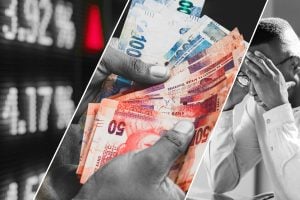Published
5 months agoon
By
zaghrah
In the third quarter of 2024, a worrying trend has emerged among South Africans earning over R35,000 monthly: rising debt levels and financial instability. According to DebtBusters’ latest Debt Index, high-income earners face unprecedented financial strain, with 66% of their take-home pay going toward debt repayments.
The debt-service ratio for high-income earners has reached its highest point since 2017, and other alarming statistics paint a bleak picture:
Additionally, 53% of these individuals have resorted to one-month payday loans, further highlighting their financial vulnerability.
Data from Standard Bank reveals a lack of financial resilience among high-income earners:
This lack of a financial safety net leaves many high-income earners vulnerable to unexpected expenses, creating a cycle of dependency on unsecured credit.
Despite positive economic developments, such as:
…income growth has failed to keep pace with rising living costs. High-income earners are finding themselves caught between significant debt obligations and stagnant earnings.
Standard Bank’s Head of Money Management and Advisory, Doret Jooste, highlighted the need for better financial literacy and planning. Jooste emphasized that individuals earning between R25,000 and R80,000 per month are equally affected by these financial challenges, regardless of their position within the income spectrum.
This crisis underscores the need for high-income earners to adopt robust financial planning strategies:
The current situation serves as a stark reminder that earning a high income does not equate to financial security. Without significant changes in financial habits, South Africa’s middle-to-upper-income earners risk falling deeper into debt and instability.















